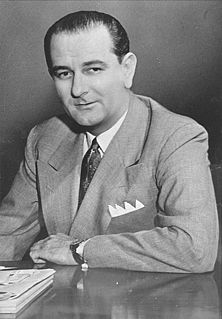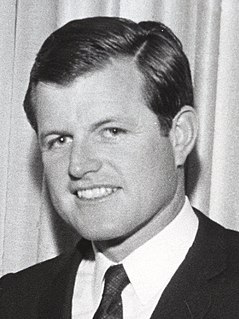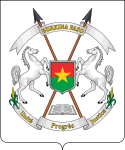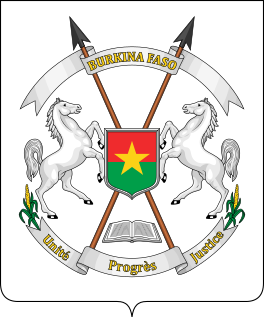A one-party state, single-party state, one-party system, or single-party system is a type of state in which one political party has the right to form the government, usually based on the existing constitution. All other parties are either outlawed or allowed to take only a limited and controlled participation in elections. Sometimes the term de facto one-party state is used to describe a dominant-party system that, unlike the one-party state, allows democratic multiparty elections, but the existing practices or balance of political power effectively prevent the opposition from winning the elections.

The Austrian People's Party is a conservative Christian-democratic political party in Austria. A successor to the Christian Social Party of the late 19th and early 20th centuries, it was founded immediately following the reestablishment of the Republic of Austria in 1945 and since then has been one of the two largest Austrian political parties with the Social Democratic Party of Austria (SPÖ). In federal governance, the ÖVP has spent most of the postwar era in a grand coalition with the SPÖ. Most recently, it has been junior partner in a coalition government with the SPÖ since 2007. However, the ÖVP won the 2017 election, having the greatest number of seats and formed a coalition with the far-right Freedom Party of Austria (FPÖ). Its chairman Sebastian Kurz is the youngest Chancellor in Austrian history.

The Union Party is a conservative-liberal and agrarian political party in the Faroe Islands. The party wants to maintain the Faroe Islands union with Denmark. On 24 October 2015 Bárður á Steig Nielsen succeeded Kaj Leo Johannesen as party leader.

The 1970 United States Senate elections was an election for the United States Senate, taking place in the middle of Richard Nixon's first term as President. The Democrats lost a net of three seats, while the Republicans and the Conservative Party of New York picked up one net seat each, and former Democrat Harry F. Byrd Jr. was re-elected as an independent.

The 1964 United States Senate elections coincided with the election of President Lyndon B. Johnson by an overwhelming majority, to a full term. His Democratic Party picked up a net two seats from the Republicans. As of 2019, this is the last time either party has had a two-thirds majority in the Senate, which would have hypothetically allowed the Senate Democrats to override a veto, convict and expel certain officials, or invoke cloture without any votes from Republicans. The Senate election coincided with Democratic gains in the House in the same year.

The Ninety-first United States Congress was a meeting of the legislative branch of the United States federal government, composed of the United States Senate and the United States House of Representatives. It met in Washington, DC from January 3, 1969, to January 3, 1971, during the first two years of the first administration of U.S. President Richard Nixon.

The 1954 United States Senate elections was a midterm election in the first term of Dwight D. Eisenhower's presidency. Eisenhower's Republican party lost a net of two seats to the Democratic opposition. This small change was just enough to give Democrats control of the chamber with the support of an Independent who caucused with them.

The 1970 United States House of Representatives elections was an election for the United States House of Representatives held on November 3, 1970, in the middle of President Richard M. Nixon's first term. The President's Republican Party lost seats, in this case a net of 12, to the Democratic Party, which thus increased modestly its majority in the House. Many viewed the results as the American public showing fatigue over the ongoing Vietnam War as well as the fallout over the Kent State Massacre. This was also the first House election when all 50 states were using the same regional single-member district system to elect Representatives instead of using at-large congressional districts. Notable freshmen included future Housing Secretary and Vice Presidential nominee Jack Kemp, future Defense Secretary Les Aspin, future Senators Paul Sarbanes and James Abourezk, future Governor of Connecticut Ella T. Grasso, future Governor of Delaware Pierre S. du Pont IV, future Governor of Nebraska Charles Thone, and future Governor of North Dakota Arthur A. Link.

The Nationalist Democratic Assembly is a political party in Bahrain. It is the Bahraini regional branch of the Iraqi-led Ba'ath Party. The party is led by Secretary General Hassan Ali and Deputy Secretary General Mahmoud Kassab. It was established by Bahrainis who had studied in Ba'athist Iraq during the 1960s and 1970s. The party boycotted the 2002 parliamentary election but not the 2006 election. The 2011 parliamentary by-election was boycotted by the party in solidarity with the Bahraini uprising. It is headquartered in Zinj.

The New Orleans mayoral election of 1969-1970 resulted in the election of Moon Landrieu as mayor of New Orleans. This election also saw an unexpectedly strong showing for a Republican candidate; the party had previously had negligible support in the city.

The Democratic Party is one of the two major contemporary political parties in the United States, along with the Republican Party. Tracing its heritage back to Thomas Jefferson and James Madison's Democratic-Republican Party, the modern-day Democratic Party was founded around 1828 by supporters of Andrew Jackson, making it the world's oldest active political party.
The Democratic Party of Georgia is the affiliate of the Democratic Party in the U.S. state of Georgia. It is one of the two major political parties in the state. It is chaired by Nikema Williams.

The 1954 South Carolina United States Senate election was held on November 2, 1954 to select the next U.S. Senator from the state of South Carolina. Senator Burnet R. Maybank did not face a primary challenge in the summer and was therefore renominated as the Democratic Party's nominee for the election in the fall. However, his death on September 1 left the Democratic Party without a nominee and the executive committee decided to nominate state Senator Edgar A. Brown as their candidate for the election. Many South Carolinians were outraged by the party's decision to forgo a primary election and former Governor Strom Thurmond entered the race as a write-in candidate. He easily won the election and became the first U.S. Senator to be elected by a write-in vote in an election where other candidates had ballot access.
The US state of Illinois is a Democratic stronghold and one of the "big three" Democratic states alongside California and New York. It is considered one of the most Democratic states in the nation and following the 2018 elections, all six statewide elected offices are held by a Democrat.

The 1970 United States Senate election in Massachusetts was held on November 3, 1970. The incumbent Democratic Senator Ted Kennedy defeated his challengers. This was Kennedy's first election run since the 1969 Chappaquiddick incident. Kennedy won 62.2% of the electoral votes, down from 74.3% that he won in the previous election in 1964, indicating that Chappaquiddick did affect his election popularity.

Democratic Party was a former political party in Turkey founded on 18 December 1970. It should not be confused with the historical Democrat Party or the current Democrat Party in Turkey.

The Illinois gubernatorial election of 1856 was the eleventh election for this office. Democratic governor Joel Aldrich Matteson did not seek re-election. Former Democratic Congressman William Henry Bissell was nominated by the newly formed Republican Party at the Bloomington Convention. Former Whig Mayor of Chicago Buckner S. Morris was nominated on the Know-Nothing Party ticket. This was the first election of a Republican governor in Illinois history. At this time in Illinois history the Lieutenant Governor was elected on a separate ballot from the governor. This would remain the case until the adoption of the 1970 constitution.

The 1972 United States elections was held on November 7, and elected the members of the 93rd United States Congress. The election took place during the later stages of the Vietnam War. The Republican Party won a landslide victory in the presidential election and picked up seats in the House, but the Democratic Party easily retained control of Congress. This was the first election after the ratification of the 26th Amendment granted the right to vote to those aged 18-20.

The 1970 United States elections were held on November 3, and elected the members of the 92nd United States Congress. The election took place during the Vietnam War, in the middle of Republican President Richard Nixon's first term. Nixon and Vice President Spiro Agnew campaigned heavily for Republican candidates, with Nixon encouraging voters to "show their displeasure with violent dissenters by voting the Republican ticket on election day." However, the Democratic Party retained its Senate majority and increased its majority in the House.

The 1970 Minnesota lieutenant gubernatorial election took place on November 3, 1970. State Senator Rudy Perpich of the Minnesota Democratic-Farmer-Labor Party defeated Duluth Mayor Ben Boo of the Republican Party of Minnesota. The 1970 lieutenant gubernatorial election was the final lieutenant gubernatorial election held before the Minnesota Constitution was amended to provide for elections of the Governor and Lieutenant Governor on a joint ticket.

















